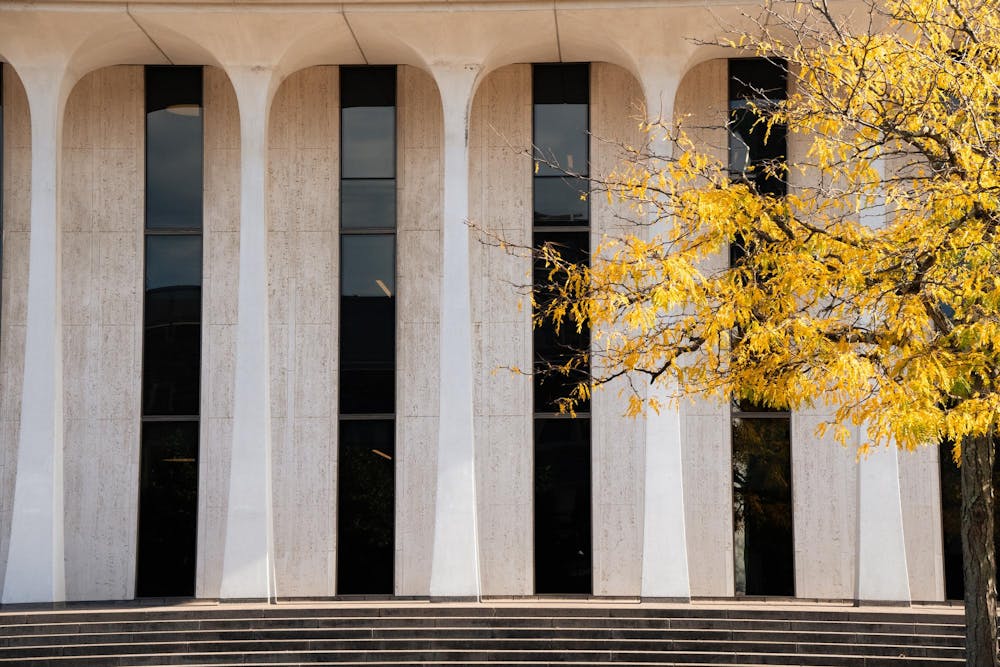The following is a guest contribution and reflects the author’s views alone. For information on how to submit a piece to the Opinion section, click here.
Studying abroad as a Princeton student is a double-edged sword. I would redo my semester in Copenhagen 10 times over; however, I am also taking six classes at two institutions to graduate on time. Moreover, Princeton’s study abroad policies undermine its emphasis on the international experience. Not only do the strict course approval process and inflexibility of major requirements deter students, but in several cases, it makes taking a semester abroad virtually impossible.
As a student within the School of Public and International Affairs (SPIA), I have experienced greater flexibility than most. SPIA “strongly encourage[s] students to study abroad” during their junior year, having offered programs at Oxford and Cambridge on an alternating basis as well as the University of Cape Town (UCT) this spring. The UCT program even caters to SPIA’s Policy Task Force requirement, allowing students to take a seminar that addresses “unfinished questions of public policy” in South Africa during their time away.
While SPIA’s global emphasis should simplify the abroad process, enrolling in DIS Copenhagen this semester was complicated. In my experience, this was not due to the Office of International Programs, which helped me seamlessly navigate pre-departure protocols, but instead because of a combination of SPIA major requirements and an overly bureaucratic system.
As there is no centralized course approval process, students must individually petition department heads to have their classes accepted. This entails deciding which major their proposed class falls under, finding the subject’s relevant point of contact, and gaining their signature approval. In most cases, majors accept a maximum of two courses per semester, which, as I quickly learned, can be vetoed if they are not deemed comparable to Princeton’s high academic standards. This often results in a frustrating and chaotic back-and-forth and students with many major requirements feeling limited by their choices.
Barriers to studying abroad are University-wide. For instance, Alexandra Frank ’25, a Bachelor of Science and Engineering student studying Electrical and Computer Engineering (ECE) explained that ECE majors must take Car Lab, a hands-on and Princeton-specific class offered to upperclassmen in the fall. Since “Princeton does not accept engineering credits from many institutions” and many classes are offered exclusively in the spring, those wanting to study abroad would have a “very difficult” senior year, having missed a spring at Princeton.
For Neuroscience student Emily Zhang ’26, the two core math classes that are usually taken as a junior impose similar limitations. Given that most students study abroad during their junior year, going as a senior “feels too late,” particularly “in relation to thesis work.”
Although Princeton’s rigorous curriculum fosters academic growth, my time in Copenhagen has strengthened my global perspective, which is equally important for a holistic education.

Initially, I struggled to adjust to Danish cultural norms and a notoriously difficult language. However, with time, I have come to love the city for its people and appreciation of individuality. My pronunciation will never be perfect, and the rush-hour bike battle is still daunting. Yet, in pushing myself outside my comfort zone, I have explored unfamiliar places and made new friends through my local rowing team. Life did not stop when I went abroad. On the contrary, it redefined my college experience.
DIS Copenhagen requires students to travel during their studies, further enriching my experience. After learning about the Irish Republican Army (IRA) in my class, Terrorism and Counterterrorism from a European Perspective, I plan to travel to Ireland and hear former IRA members speak about the conflict. Listening to their testimonies will provide excellent context for my senior thesis.
Through separate classes on Cyberwarfare and Arctic Geopolitics, I have gained a deeper understanding of topics taught less frequently at Princeton. These experiences were unique to a semester abroad and could not be meaningfully achieved during the short two months many Princetonians take to live abroad for internships or summer study. This semester in Copenhagen has reaffirmed my belief, saliently put by Julianna Lee ’25 in her recent ‘Prince’ column, that “every … student should stretch themselves, just a little, to study abroad.”
Princeton prides itself on educational excellence, world-class research, and international experiences. But when it comes to integrating academic requirements with classes taken abroad, the University falls short.

Princetonians do not need further encouragement to embark on new adventures, but rather greater flexibility in course selection and an easier course approval process. We are miles behind other Ivies such as Dartmouth, who prioritize their students experiencing these international opportunities while maintaining academic rigor. So Princeton, help students make studying abroad an easier decision. It is the greatest privilege. Let’s make it the norm, not the exception.
Chloe Cresswell is a junior from London, England, majoring in the School of Public and International Affairs. She can be reached by email at cc8553@princeton.edu.








